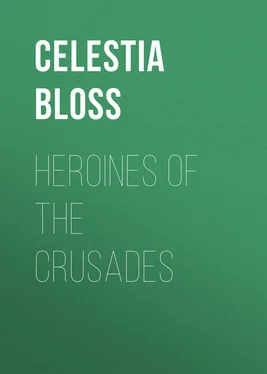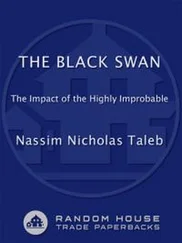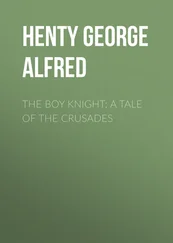Celestia Bloss - Heroines of the Crusades
Здесь есть возможность читать онлайн «Celestia Bloss - Heroines of the Crusades» — ознакомительный отрывок электронной книги совершенно бесплатно, а после прочтения отрывка купить полную версию. В некоторых случаях можно слушать аудио, скачать через торрент в формате fb2 и присутствует краткое содержание. Жанр: foreign_antique, foreign_prose, на английском языке. Описание произведения, (предисловие) а так же отзывы посетителей доступны на портале библиотеки ЛибКат.
- Название:Heroines of the Crusades
- Автор:
- Жанр:
- Год:неизвестен
- ISBN:нет данных
- Рейтинг книги:3 / 5. Голосов: 1
-
Избранное:Добавить в избранное
- Отзывы:
-
Ваша оценка:
- 60
- 1
- 2
- 3
- 4
- 5
Heroines of the Crusades: краткое содержание, описание и аннотация
Предлагаем к чтению аннотацию, описание, краткое содержание или предисловие (зависит от того, что написал сам автор книги «Heroines of the Crusades»). Если вы не нашли необходимую информацию о книге — напишите в комментариях, мы постараемся отыскать её.
Heroines of the Crusades — читать онлайн ознакомительный отрывок
Ниже представлен текст книги, разбитый по страницам. Система сохранения места последней прочитанной страницы, позволяет с удобством читать онлайн бесплатно книгу «Heroines of the Crusades», без необходимости каждый раз заново искать на чём Вы остановились. Поставьте закладку, и сможете в любой момент перейти на страницу, на которой закончили чтение.
Интервал:
Закладка:
She tore off the envelope, and the scarf which her girlish hand had wrought in the hours of her first sweet love, soiled and blood-stained, fell across her lap, and crept accusingly to her feet. She opened the letter and read —
“To Adela, my best and only beloved, thy Stephen sends this last token of affection. In this my dying hour it is my sweetest consolation to feel that with my sword I have pierced the cloud that has so long been between us, and that could I see my Adela, she would smile upon me as the loved and honored husband of her youth. I have bathed in the Jordan, and worshipped at the sepulchre; but it was the human love and not the Divine , that baptized my soul with joy, and whispered pardon to my wounded spirit. I have sought for glory in the land of patriarchs and prophets, and I have found it; but in the accents of fame my ear has heard only the voice of Adela. The Eternal saw mine idolatry and punished it. Adverse winds drove back the vessel that was to bear me to my native land. The King of Jerusalem called upon us again for aid. We fought in the plains of Ramula, seven hundred knights against the whole force of the Turkish army. Hemmed in on every side, we fell, bravely defending the standard of the cross. Fainting from loss of blood, my dull ear heard the cry of ‘Allah ackbar.’ Like one dreaming I called upon the name of Hardrager. Immediately the old man came to me and stanching my mortal wound, bound it tightly with the scarf which I had thrown across my breast to animate me, for the conflict. I was conveyed away, and awoke as did Ingulfus, in the cave of the Assassins. I know that I shall die. I cannot long sustain the pressure of the ligament, and when once ’tis loosened my last blood will flow. Hardrager has promised me christian burial, and sent for a priest to shrive my parting soul. Think of me kindly, proudly, my best beloved. Teach my sons to honor their father’s name, for he died fighting in the Holy Land. Kiss my darling Lucy, the sweet babe who unconsciously smiled upon my return. Darkness gathers upon my sight. The forms that gladdened my youthful days pass before me, and the fairest among them all is my bride, my Adela.” A few more words were indistinctly traced, the page seemed blotted with tears, and the name of Stephen was scarcely legible.
Years passed over the spirit of the countess in the intense agony of that one night. Her heart-strings strained to their utmost tension by the power of this mighty woe, thenceforth gave no response to the light fingering of ordinary circumstance. The tender solicitude of friendship, the sweet prattle of childhood, the hilarity of mirth, the consolations of religion, and the schemes of ambition, were endured and accepted with the same passionless apathy. She made a journey to Normandy, and arranged a reconciliation between her brother Henry and the primate Anselm with her accustomed wisdom. She visited Boulogne, and presided at the nuptials of her son Stephen with her wonted grace. She gave her Lucy to the Earl of Chester, with a mother’s blessing, and saw her depart in the fatal White Ship without emotion. But when she again stood at the door of the abbey of Feschamp to welcome Maude once more to Normandy, the curtain of retrospection was lifted, and the whole drama of her life passed before her. Adela and Maude! The disparity between the happy child and the sad captive was less striking than the contrast between the elegant and stately Countess of Blois, and the serene and gracious princess of Scotland, who now met after life had gathered the bloom of their youthful beauty, and left the indefinable shades which character traces upon the human countenance. Fixed and calm were the features of Adela, once radiant with vivacity, but their repose was the death of emotion, and their calmness was not resignation, but submission to inexorable fate. The face of Maude, still fair and beautiful in the strength of its repose, beamed with the serene benignity of ineffable peace, and she seemed one, the joyousness of whose inner life found occasion for an overflow of beneficence in every outward occurrence.
Again they journeyed together through the scenes that witnessed the triumphal progress of William the Conqueror. But it was now the task of Maude to soothe the spirit of her friend, bound with the chain of remorseful regret. Cicely, celebrated for her piety, had become lady abbess of the convent of Caen, and it was the intention of the countess to enter the nunnery under her care. In fitting up her dormitory Adela had laid aside all her accustomed magnificence, and the only relic of her former state was a gorgeous curtain that divided her oratory from the cheerless apartment, chosen as the home of her future years.
“Maude,” said she, as they sat together there, “rememberest thou the riddle of life and love that once formed our theme of converse in an hour like this? How thy heart pined for the convent, and mine shuddered at its gloom.”
“Aye,” said Maude, “well do I remember it, and often have I smiled at the presumption which made me attempt to solve the greatest mystery of human existence, and arrogate to myself the choice of the future; when the highest wisdom leads only to the faithful performance of daily duties.”
“I mind me now,” replied the countess, “that thy gentle admonition pointed to that effect. – But I scorned control, and when I saw the cruel policy by which my father strengthened his dominion, I determined that my hand should never seal the bond of a political alliance, and it was not till after years that I learned that the meeting between Stephen and myself resulted from a preconcerted plan to bind me to one whose mild virtues would counteract my unholy aspirings. Thy instructions had taught me the power of a righteous purpose, and I sought its aid to compensate for what I considered a defect in my husband’s character, vainly hoping that ambition, sanctioned by religion, would secure its reward. With fatal skill I wrought upon his generous affections till he relinquished the dear delights of his family, to seek barren laurels, and find a lonely grave on a foreign shore.”
“Reproach not thyself,” said Maude, tenderly.
The countess heeded not her interruption. “Thou and I,” said she, “have wrought for different ends, and the results for which I toiled have come to thee unsought.”
Maude would have replied, but the passionate woman proceeded. “Nay, let me speak; for since my great grief has fallen upon me, I have unburdened my heart to no one. As a captive thou didst bring a blessing to the household of the Conqueror; thy sweet spirit moulded the rude Simon into a benefactor of his dependents, and I know well that it was thy benevolent wisdom which instructed Matilda to secure the liberty of England, and the stability of Henry’s throne. Thy silent sacrifices have made the rich current of thy life one stream of beneficence, while my erring spirit has converted the bounties of heaven into fountains of misery. My wicked pride found occasion in the imbecility of my first-born William for ceaseless repining, and sowed the seeds of sorrow in the hearts of my other noble beautiful children. Thibaut is in arms against his sovereign, Stephen a pensioner on the fickle humors of a king, Henry seeks preferment through the church, and my lovely Lucy, the darling of her father, lies entombed in the sea. Oh! Maude! Maude! my best and truest friend, pity her whose only occupation through long years has been ‘to write bitter things against herself!’ But I might have known it all,” continued she impetuously, “for heaven through thy intercession deigned to warn me of my fate, and I would not tell thee lest thy gentle love should win me from it.”
She drew aside the curtain of the oratory, and led the princess within the shadow. Through the oriel windows the mellow light of the autumnal sun fell softly upon the altar, where stood beside the crucifix the crystal urn containing the hallowed dust of Palestine. The scarf of Stephen, with its golden embroidery rusted, and its bright pearls dimmed with his blood, was wound round the precious love-gift, and fastened with the thorn obtained from Ingulfus.
Читать дальшеИнтервал:
Закладка:
Похожие книги на «Heroines of the Crusades»
Представляем Вашему вниманию похожие книги на «Heroines of the Crusades» списком для выбора. Мы отобрали схожую по названию и смыслу литературу в надежде предоставить читателям больше вариантов отыскать новые, интересные, ещё непрочитанные произведения.
Обсуждение, отзывы о книге «Heroines of the Crusades» и просто собственные мнения читателей. Оставьте ваши комментарии, напишите, что Вы думаете о произведении, его смысле или главных героях. Укажите что конкретно понравилось, а что нет, и почему Вы так считаете.












